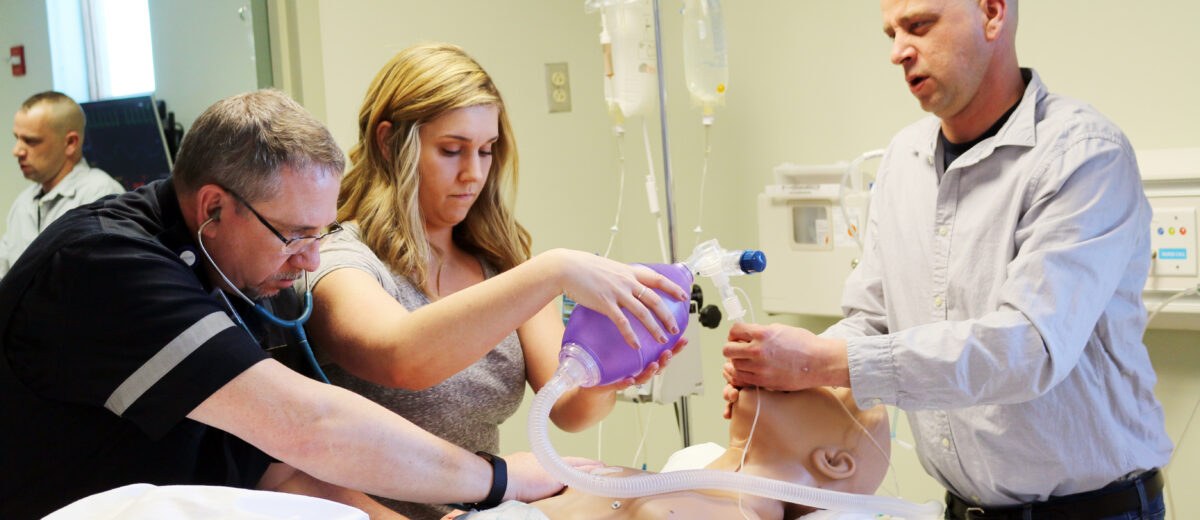Building Clinical Capability and Capacity
Collaborative training program in Aroostook aims to be a model for improving emergency care in Maine’s rural regions
Every sixty seconds an ambulance arrives at an emergency department somewhere in Maine with a 9-1-1 patient. While most of these patients are treated quickly and completely at the initial hospital, some of them need to be transferred to a specialty physician and hospital for care that isn’t available locally.
For those patients who suffer from time-sensitive critical illnesses or injuries and require hospital-level care during transport, LifeFlight is called. As the number of these patients has grown over the years, LifeFlight has added aircraft and advanced clinical crew to meet the need. While this has helped hundreds of additional patients each year, there are still some who need critical care transport but LifeFlight cannot reach due to weather and resources.
Aroostook County in particular presents a special challenge for patients who need care at a different hospital. The geography and distances are complex, combined with some of the harshest winter conditions in the state. Aroostook’s four community hospitals (Northern Maine Medical Center in Fort Kent, Cary Medical Center in Caribou, Northern Light AR Gould in Presque Isle, and Houlton Regional Hospital) are located farther from a major medical center than any of Maine’s other hospitals. When LifeFlight is unable to respond, the hospitals need to provide ground transfer to distant specialty centers with local teams.
Faced with these challenges, the hospitals and LifeFlight launched a collaborative effort to build additional capacity and capability for ground transport. Hospital physicians, LifeFlight and Northern Maine Community College (NMCC) came together in early 2020 to develop an education program designed to update the skills of physicians, nurses and paramedics to the most current critical care standards. In addition, the program aims to improve core resuscitation and critical care skills of hospital staff.
The program was delivered by LifeFlight’s Critical Care Academy in conjunction with local emergency physicians, NMCC and the Critical Care Training Institute. The project was supported by Linda and Diana Bean, the Lunder Foundation, the Davis Family Foundation, and the MCCS Maine Quality Centers.
A few years ago, LifeFlight created the mobile Critical Care Academy to improve capacity and capability across the state. The Academy’s focus is to improve the clinical proficiencies of experienced providers currently working in hospital emergency departments, intensive care units or transport environments. The program supplements existing educational programs for EMTs, paramedics and nurses currently provided by Maine’s community colleges and universities.
The goal is also to work with teams in other parts of Maine to test the viability of replicating the effort in rural areas which face many of the same challenges.
